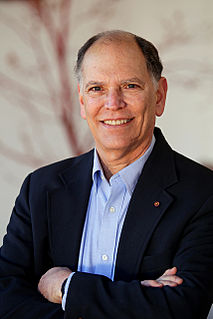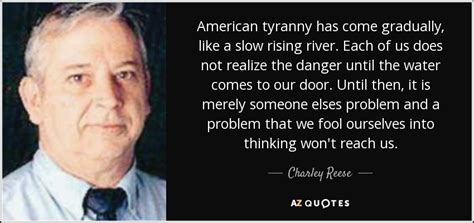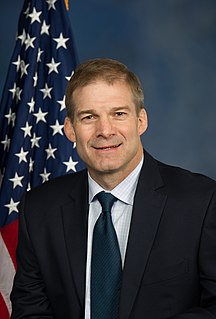Top 1200 Corporate Culture Quotes & Sayings - Page 3
Explore popular Corporate Culture quotes.
Last updated on November 8, 2024.
"Culture" is a new phenomenon, I believe. Culture is the new religion. People treat you based upon your culture. You are pushed to describe yourself by your culture: Kurdish or Turkish? Left wing or right wing? Progressive or conservative? Westerner or Easterner? European or Asian? So we have a label ready for you.
I've gone into prisons, I've gone into schools, I've gone into corporations, all over the world. It doesn't matter where you go, people are essentially the same. Our culture is different, but culture is nothing but group habit, culture is paradigm and when you get past the culture, people are essentially the same.
We also need to reduce corporate tax rates. This applies to small, medium and large businesses. At 35 percent, we have the second highest corporate rates in the world. It restricts the growth of small enterprises that need to plow capital back into their businesses and forces companies and jobs to move overseas.
I forget what the relevant American rate is, but I can tell you that our goal is to have a combined federal-provincial corporate tax rate of no more than 25 percent. We're on target to do that by 2012. We will have significantly - by a significant margin the lowest corporate tax rates in the G-7, and that's our - our government's objective.
I think the corporate world is pretty starved for personality. The reason you have comic strips like 'Dilbert' and sitcoms like 'The Office' is that people just can't be genuine human beings in a corporate environment. So if you can really be your own self, even if it's a little bit different, I think people are really drawn to that.
The problem of culture is seldom grasped correctly. The goal of a culture is not the greatest possible happiness of a people, noris it the unhindered development of all their talents; instead, culture shows itself in the correct proportion of these developments. Its aim points beyond earthly happiness: the production of great works is the aim of culture.
The Joint Committee on Taxation estimated that in 2016, the corporate income tax raised $300 billion in revenue, while what it called 'targeted subsidies' cost about $270 billion. In other words, Congress could eliminate the subsidies and cut the corporate rate nearly in half without any significant loss in revenue.
Poetry at large in America is naturally a reflection of the American system and culture. That's my possibly narrow view of it, or reductive view. But I think for as many portals for critical consciousness in the poetry world and in the American spirit that exist, there's also an over-arching, dominant mirroring, in poetry, of the corporate structure, the capitalist enterprise.
After many years of hip-hop as a nation we should have the sophistication to accept that their are distinctions between the corporate manifestation of hip-hop, sold as a commodity and package with sensational race, sex and violent imagery, and the hip-hop culture that kids are living everyday at a local level, which often doesn't dabble in that terrain.
My money buys me the freedom not to be a member of the corporate structure. And I certainly don't feel guilty or hypocritical about that. The way our economy is set up, if you don't want to be a corporate moron and you don't want to be enfeebled in the streets, you must earn enough to know that you'll never have to go to them for money.
Where it is the majority religion, Islam does not recognize religious freedom, at least not as we understand it. Islam is a different culture. This doesn't mean that it's an inferior culture, but it is a culture that has yet to connect with the positive sides of our modern Western culture: religious freedom, human rights and equal rights for women.
We need to have honest conversations among women and men to say how do we stop blaming each other? Because I'm not saying that every woman wants to be a corporate CEO. We need so that the women who are corporate CEOs get supported and they're not looking askance or down at women who make other choices in life.
Research has shown that middle-income wage earners would benefit most from a large reduction in corporate tax rates. The corporate tax is not a rich-man's tax. Corporations don't even pay it. They just pass the tax on in terms of lower wages and benefits, higher consumer prices, and less stockholder value.
My interest in culture generally is a comparative one, and I think that's where the word joy, I think, can be applicable. There's joy in actually seeing the relatedness, the connectedness of different cultures or recognising, for instance, your own culture in another or another culture in your own culture and feeling an air to all of them.
My failed corporate career became the fodder for the 'Dilbert' comic. Once it became clear I would not be climbing any higher on the corporate ladder, it freed me to mock managers without worrying that it would stall my career. Most failures create some sort of unplanned freedom. I took full advantage of mine.
If Americans wish to preserve a country they will recognize, then the first step is to recognize the enemy. Public education is the enemy. The entertainment industry is the enemy. The corporate culture is the enemy. The advertising industry is the enemy. And most of the politicians in both parties are the enemy. An enemy is defined as anybody, or any organization, which is attacking the traditional beliefs of Americans.
Far too many people, especially within evangelicalism, think that the individual is all that matters, and that the corporate dimension is a distraction or diversion. Of course Christianity is deeply personal for every single Christian; nobody gets lost in the kingdom of God. But you can't play that off against the corporate dimension.
A triumphalist corporate capitalism, free at last of the specter of Communism, has mobilized its economic power to relentlessly marginalize all nonmarket values; to subordinate every aspect of American life to corporate "efficiency" and the bottom line; to demonize not only government but the very idea of public service and public goods.
It seemed [there are] musical nodes on the planet where cultures meet and mix, sometimes as a result of unfortunate circumstances, like slavery or something else, in places like New Orleans and Havana and Brazil. And those are places where the European culture and indigenous culture and African culture all met and lived together, and some new kind of culture and especially music came out of that.
I will step outside the system. Voting for the “lesser evil”-or failing to vote at all-is part of the corporate agenda to crush what is left of our anemic democracy. And those who continue to participate in the vaudeville of a two-party process, who refuse to confront in every way possible the structures of corporate power, assure our mutual destruction.
As soon as there's a crisis, there are people who take charge and want to control others. Climate-change catastrophe and human migration and immigration are great for corporate and governmental control over people, and we have to contend with that. I should say, I see corporate control behind everything that the government is working on right now.
Citizens United is a disgrace of a decision, holding that corporate money is corporate speech and entitled to the same First Amendment protection as human speech. As a result, corporations now can spend unlimited amounts of money to influence our elections - often in secret, without any public disclosure.
A free culture is not a culture without property; it is not a culture in which artists don't get paid. A culture without property, or in which creators can't get paid, is anarchy, not freedom. Anarchy is not what I advance here. Instead, the free culture that I defend in this book is a balance between anarchy and control.
Populists have always been out to challenge the orthodoxy of the corporate order and to empower workaday Americans so they can control their own economic and political destinies. This approach distinguishes the movement from classic liberalism, which seeks to live in harmony with concentrated corporate power by trying to regulate excesses.
Indeed the three policy pillars of the neoliberal age-privatization of the public sphere, deregulation of the corporate sector, and the lowering of income and corporate taxes, paid for with cuts to public spending-are each incompatible with many of the actions we must take to bring our emissions to safe levels.
Capital burns off the nuance in a culture. Foreign investment, global markets, corporate acquisitions, the flow of information through transnational media, the attenuating influence of money that's electronic and sex that's cyberspaced, untouched money and computer-safe sex, the convergence of consumer desire--not that people want the same things, necessarily, but that they want the same range of choices.


























































